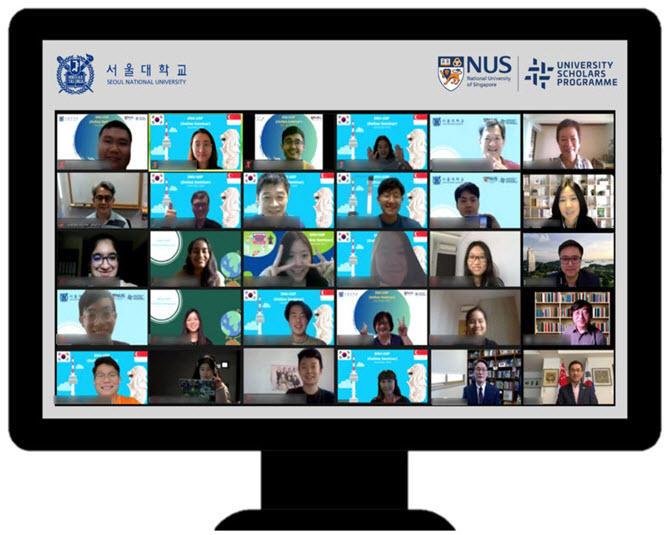Overseas programs are one of the most anticipated highlights of university life. SNU offers a variety of international education opportunities to enhance the international capabilities of its students. In the past year, however, COVID-related travel restrictions have led to several overseas programs being canceled, one after another. Many students had to give up on their semesters abroad for safety reasons, and short-term visiting programs became almost impossible. In an effort to make up for this, the Office of International Affairs (OIA) launched the Digital SNU in the World Program (Digital SWP) last winter.
Enhancing the international possibilities for students
The SNU in the World Program (SWP) aims to provide SNU students with opportunities to study in major cities around the world. The SWP is held during the summer and winter vacations every year, and is designed with activities to encourage students to learn more about the politics, economy, diplomacy, and culture of countries such as the United States, China, and the United Kingdom. The structure of the program is twofold – first, students take classes on related subjects at SNU before departing, and second, students continue their learning by conducting team projects and taking native language classes in the respective countries.
The Digital SWP replaced the overseas portion of the SWP with online lectures. According to Lee Seung-ho, a senior official at the OIA in charge of the program, the Digital SWP was launched out of concern that the prolonged COVID-19 situation would rob students of the SWP experience completely. “In addition to the online lectures, we paid a lot of attention to providing opportunities for offline collective education,” he said, stressing that the goal was to promote active exchanges among program participants despite the challenging circumstances.

Students participate in Digital SNU in World Singapore Program
Meeting the world online
The Digital SWP hosted its in-person gatherings on the newly built Siheung Campus. This allowed students to not only experience a new SNU campus, but also to participate in the program with a lowered risk of group infection due to its lower population density. Digital SWP Tokyo and Digital SWP Singapore provided opportunities to interact and collaborate online with local students from each participating university.
Digital SNU in World Singapore Program, conducted on SNU Siheung Campus
The programs were rated highly by students, who expressed satisfaction with the variety of lecture topics available as well as with the team projects. Kang Yoo-jin (Department of Asian History), who participated in Digital SWP Tokyo, mentioned that the most memorable part of the program for her was the people she met. “I shared many interests with both the Japanese and Korean students on my team. I thought it would be difficult for us to have proper exchanges over Zoom, but we were able to have a lot of meaningful conversations with each other,” Kang said. She also expressed her gratitude to the organizers, saying that she would be recommending the program to her peers.
In reassuring disappointed students, Lee Seung-ho reaffirmed that the OIA remains committed to fostering international talent among SNU students. “It is unfortunate that international education programs, including the SWP, have not been able to go ahead as usual due to the circumstances, which have made a 180-degree turn over the last year. But we ask that students keep an eye out for upcoming OIA programs,” Lee said. During the upcoming summer semester, students will be able to take online lectures by international scholars for credit through the revamped International Summer Program (ISP). As the Digital Winter Session, which piloted last winter semester, was well received, the 25 courses offered as part of the ISP will be open not only to SNU students but also to students at overseas universities. The course syllabi and registration process will be announced in early May.
Source: https://www.snu.ac.kr/snunow/snu_story?md=v&bbsidx=131469
Written by Minju Kim, SNU English Editor, minjukimm@snu.ac.kr
Reviewed by Professor Travis Smith, Department of Asian Languages and Civilizations, tlsmith@snu.ac.kr

